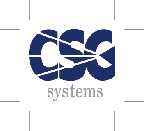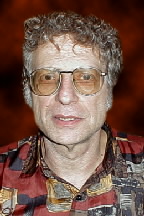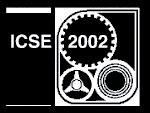 |
|
 |
Home
Conference Updates
Advance Program
Overview
Technical Papers
Conference Keynotes
Tutorials
Workshops
Industry Presentations
State-of-the-Art Presentations
Doctoral Symposium
IMPACT Presentations
Panels
Co-Located Events
Posters and Demos
Exhibitors
Call For Participation
Types of Submissions
Student Volunteers
Conference Calendar
Program At-A-Glance!
Conference Meetings
Conference Information
Conference Committee
Program Committee
Sponsors and Supporters
Advice for Newcomers
Registration
Overview
Travel Information and Events
Overview
Conference Hotel
Discount Airfares
Discount Airport Shuttle
Discount Theme Park Tickets
Securing a Visa
Spouse Program
ICSE 5K Run
Related Conferences
Other ICSE Conferences
ICSE 2002 Keynote Speakers
ICSE 2002 will feature three keynote speakers.
Wednesday, 22 May 2002
 |
Jim Cassell, Gartner Group Vice President, Dataquest Research jim.cassell@gartner.com |
Abstract
Transforming and Extending the Enterprise Through IT
In this time of economic turmoil, IT is emerging as a foundation for transition to the New Economy. This presentation provides a high-level perspective on the key business and technology megatrends shaping the future of IT, as well as the key management initiatives required to harness and exploit IT effectively.
Key issues include:
- What are the key trends and events that will drive new IT investments during the next five years?
- How will technology advances and changes impact IT deployment decisions?
- How can organizations harness and exploit IT despite ever-increasing complexity and volatility?
Bio
James Cassell is Group Vice President, Dataquest Research. His current role is to be a primary Gartner interface to vendor clients at the executive level to determine their requirements and issues, as well as provide integrated GartnerGroup solutions to client business issues.
Mr. Cassell's 23 years experience with IBM included positions in product development management and large systems product marketing. He was also market requirements manager for the scientific/engineering processor products in the Data Systems Division. In that position, he focused on the opportunities and requirements for scientific and commercial use of parallel processing systems.
Mr. Cassell joined Gartner in 1988. His primary research has focused on enterprise systems architectures, large systems design and performance, and the business practices of the major large systems vendors. Mr. Cassell was Vice President and Service Director of the Large Computer Strategies Service from 1990 through March 1994. Until June 1996, he served as Director of the Asia Pacific Research Center (APRC), which focuses on all aspects of information technology as they relate to the "Pacific Rim" and South Pacific geographies. Mr. Cassell, in addition to managing the APRC in Brisbane, Australia, established a second research center in Tokyo, Japan, which undertakes research exclusively for the Japanese market. He was also involved in setting up the Gartner research facility in Curitiba, Brazil, and Buenos Aires, Argentina.
Thursday, 23 May 2002
 |
Donna H. Rhodes, CSG Systems Director, Processes & Quality rhodes@incose.org  |
Abstract
Systems Engineering:
An Essential Engineering Discipline for the 21st Century
The engineering of systems in the 21st century demands robust use of the systems approach given the nature of our times, as well as the systems being created. The global marketplace, changing competition dynamics, shorter lifecycles, and increasing complexity characterize our environment. We are building systems that are much larger than ever before. And, we are building systems that are infinitely smaller than ever before. Maturity of technical, management, and infrastructure processes are competitive discriminators. Systems engineering, both as a profession and as practiced by multi-discipline practitioners, is key to addressing these challenges.
Over the past decade, there have been frequent debates on whether systems engineering is an approach or a formal field of engineering. Given the technical, management, and environmental challenges of this century, I believe that systems engineering must be an essential engineering discipline for the 21st century. This talk will discuss the state of the art and practice of systems engineering, and several initiatives focused on its evolution as a formal engineering discipline.
While systems engineering approaches date back to ancient times, the recent few decades have largely featured practices and methods that extend from efforts of the 1950’s, thus drawing heavily from hardware engineering. As software engineering has grown as a discipline, it has had significant influence on the field of systems engineering. Further, as systems engineering becomes a more integral part of commercial product development, the character of the systems engineering discipline expands and the associated research agenda takes new shape. Systems engineering and software engineering must each evolve as unique engineering disciplines to address the engineering problems of the 21st century. We must ensure their evolution results in shared knowledge, and highly collaborative approaches and methods drawing on the unique strengths of each discipline.
Bio
Dr. Donna H. Rhodes is presently Director of Processes & Quality at CSG Systems in Cambridge, Massachusetts where she is focused on addressing the increasing systems challenges in commercial software product development. Previously Dr. Rhodes was the Systems Engineering Process Owner at Lockheed Martin Federal Systems (LMFS) in Owego, New York. She managed the engineering center-of-competence, providing consultation on engineering practices and technologies. She was a member of the team awarded the 1998 Lockheed Martin NOVA Award for contributions leading to LMFS Owego's attainment of the Software Engineering Institute's highest rating of Software Capability Maturity Level 5.
Dr. Rhodes was the 2000 President of the International Council on Systems Engineering (INCOSE), and presently serves on the Board of Directors. She is an Associate Editor of Systems Engineering, the journal of INCOSE. She has published over 30 technical papers in the field of systems engineering, co-authored industry and company standards and guidebooks, and has been an invited speaker and panelist for numerous industry, government, university, and company activities. Dr. Rhodes received her M.S. and Ph.D. in Systems Science/Advanced Technology from State University of New York at Binghamton. She is a member of several university/industry advisory boards focused on establishing systems engineering graduate degree programs.
Friday, 24 May 2002
 |
Bob Balzer, Teknowledge Corporation Chief Technical Officer Director, Distributed Systems Group balzer@teknowledge.com |
Abstract
Living With COTS
Computer usage has evolved from small special purpose applications to large Commercial Off The Shelf Software (COTS) products that dominate the landscape. These COTS products present major challenges for our traditional software assistance paradigm.
This talk will explore those challenges and suggest research opportunities for software assistance in extending COTS products, in integrating them with other components, and in using them.
Bio
Dr. Robert Balzer received his B.S., M.S., and Ph.D. degrees in Electrical Engineering from the Carnegie Institute of Technology, Pittsburgh, Pennsylvania, in 1964, 1965, and 1966, respectively.
After several years at the Rand Corporation, he left to help form the University of Southern California's Information Sciences Institute (USC-ISI) where he served as Director of ISI's Software Sciences Division and Professor of Computer Science at USC from 1972 to 2000. Last year he joined Teknowledge Corporation as their Chief Technical Officer and Director of their Distributed Systems Unit. The Distributed Systems Unit combines artificial intelligence, database, and software engineering techniques to automate the software development process. Current research includes wrapping COTS products to provide safe and secure execution environments, extend their functionality, and integrate them together; instrumenting software architectures; and generating systems from domain specific specifications.


